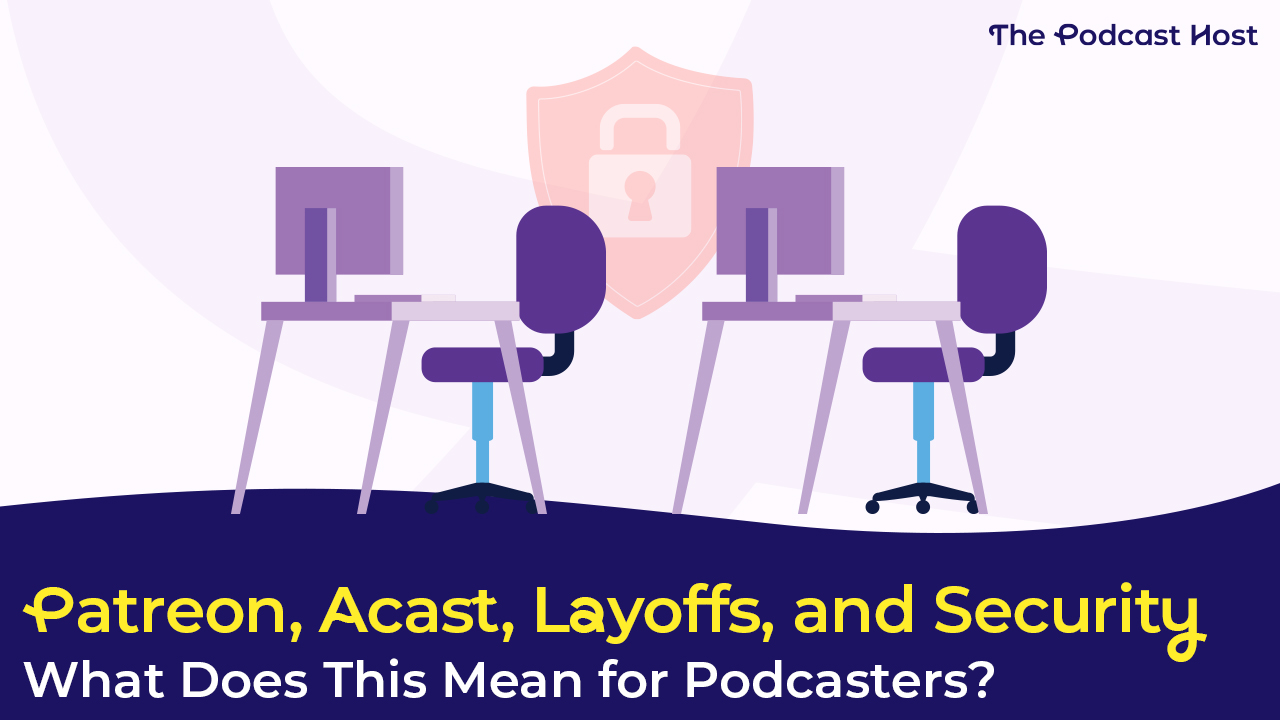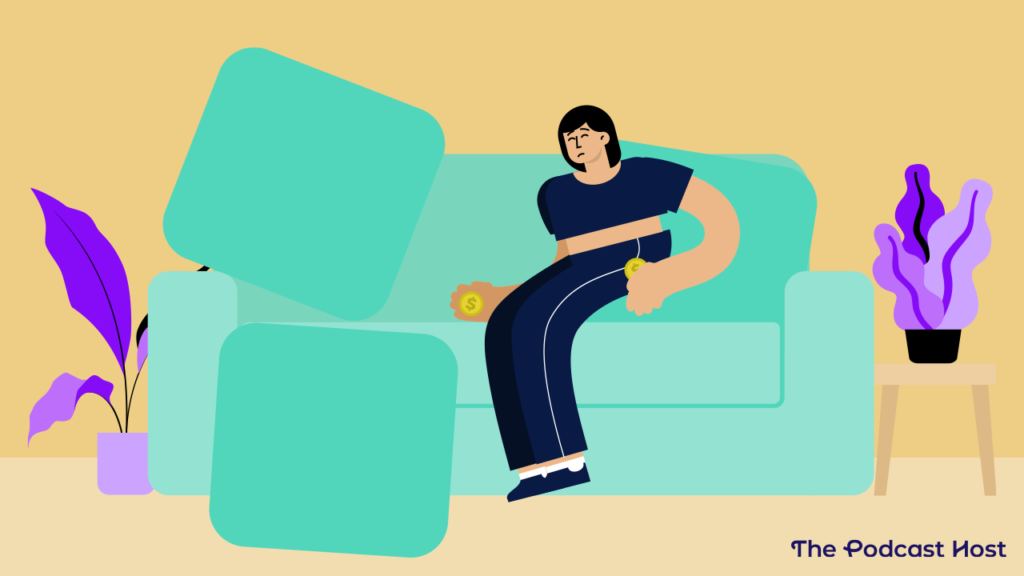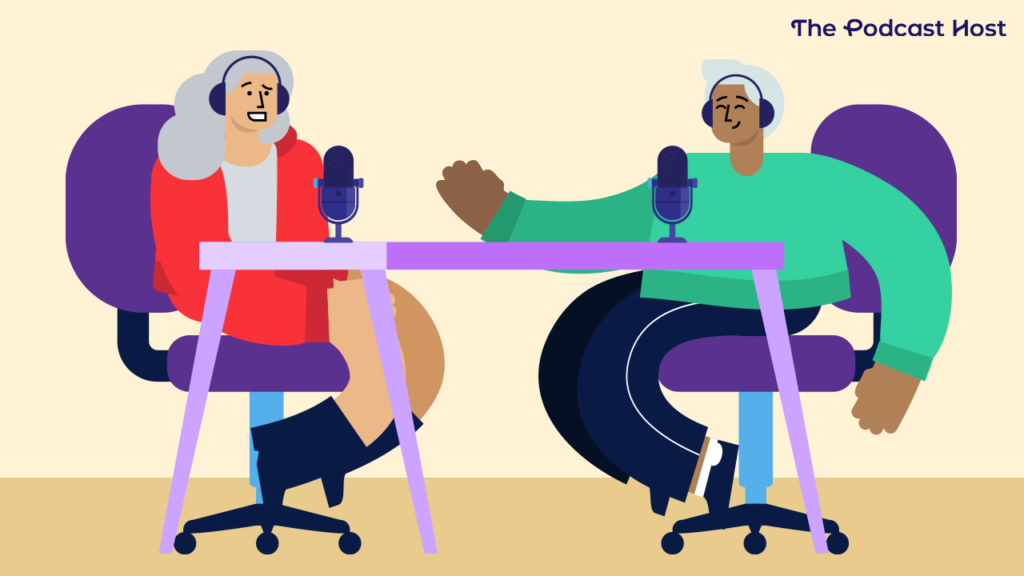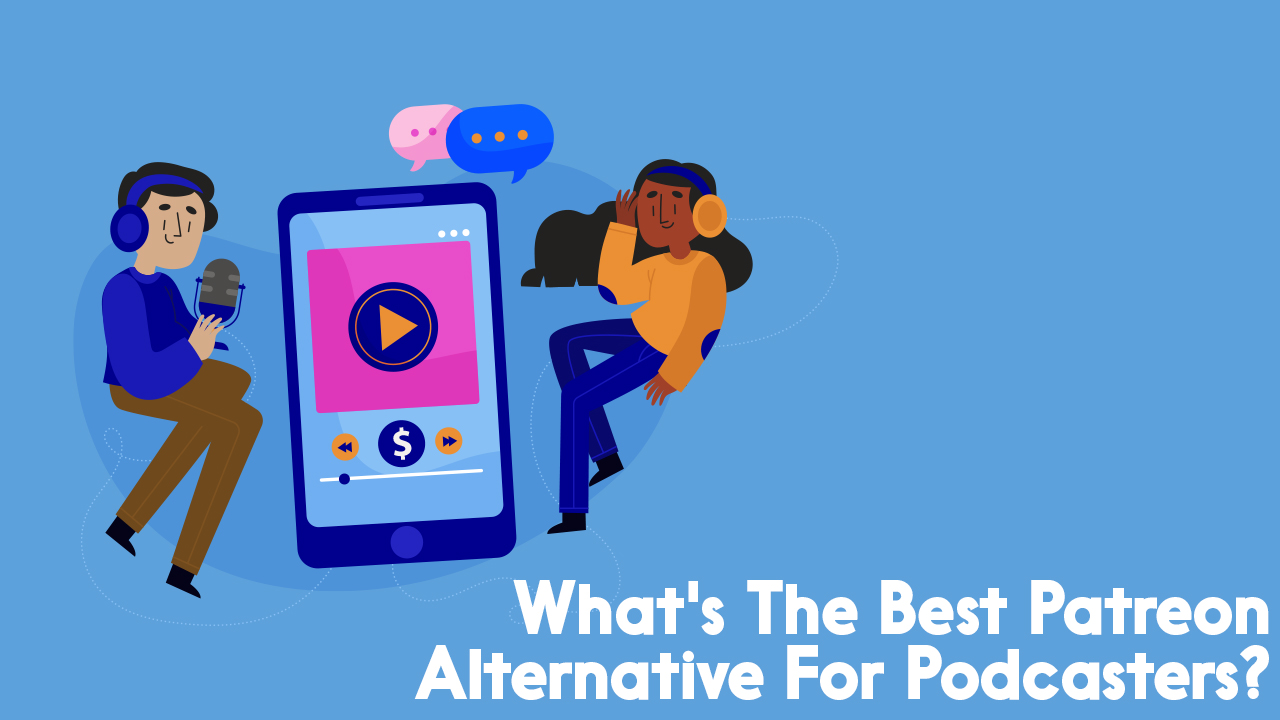Patreon, Acast, Layoffs, & Security: What Does This Mean for Podcasters?

While most of the world was tuned into news about the passing of Queen Elizabeth II, Patreon and Acast made some changes. These could save them money but make more work for podcasters. Patreon laid off its entire information security staff and eventually 17% of its workforce. Acast announced it would “reduce its costs,” which “would imply a decrease of the current workforce by approximately 15 percent.” Each company has worked hard to build a reputation to help independent creators monetize, host, and distribute their content. Why did Patreon and Acast eliminate so much of their staff and prioritize cutbacks? What do these layoffs and security changes mean for podcasters?
Why Are Patreon and Acast Cutting Back?
In December of 2021, the creator economy boasted over 50 million content creators. There were “estimations that it could grow to a $104.2 billion market in 2022.” Other sources said it was simply another gig economy or an unstable bubble that could burst anytime. Stuart Dredge said, for Music Ally, “margins in these creator-serving businesses are tough, thanks to the fierce competition and the perception (if not always the reality) of free alternatives. Do enough creators want to pay – and do they want to pay enough – for tools and services that support their businesses?”
More importantly, can creators cover those margins?
Patreon’s Layoffs and Security Announcement
Patreon CEO Jack Conte said, in a public blog post, “The pandemic introduced volatility to the broader trend [of the creator economy], starting with a rapid acceleration during COVID lockdowns. In response, we built an operating plan to support this outsized growth, but as the world began recovering from the pandemic and enduring a broader economic slowdown, that plan is no longer the right path forward for Patreon. I take full responsibility for choosing that original path forward, and for the changes today, which will be very difficult for our team.”
Conte addressed the security team layoffs. He said this was “part of a longer-term strategy to continue distributing security responsibilities across our entire engineering team, bring new areas of expertise into Patreon internally, and continue partnering with external experts.”
Acast’s Workforce Reduction Announcement
Acast’s press release took a different attitude from Patreon’s. They described the layoffs as numbers, not people. “After an intensive period of product development and investments, focus will shift towards the creation of profitable growth in line with the company’s updated financial goals, which were presented in the report for the second quarter. The cost reductions imply a decrease of the current workforce by approximately 15 percent. Our strategy is based on bringing together advertisers with podcast creators via our platform and delivering the absolute best podcast offering. ”
After all of the creator-first efforts to launch Acast Plus, their primary focus is advertising and profit.
To Summarize the Austerity Measures
It’s not only Patreon and Acast who are using layoffs and security tightening to save money. Soundcloud laid off 20% of its workforce in August. The creator economy boom of 2020-21 hasn’t continued to be profitable for platforms as Patreon or Acast hoped. For some areas, they may need to scale back. In other ways, they may want to placate investors.

What Do Patreon and Acast’s Layoffs and Security Changes Mean for Podcasters?
Patreon and Acast take up a lot of space in the podcasting zeitgeist. Patreon has become a brand buzzword in the same way that Kickstarter, Thermos, or Kleenex have. Acast Plus set up a system for podcasters with hosting, transcripts, monetization, and community engagement, all in one website. But, that doesn’t make them the only players on the field. Podcasters have options if they’re willing to shop around. That’s what we’re here for.
Take Responsibility For Your Podcast Security
Advocates for outsourcing corporate security tend to be people who work for dedicated cybersecurity firms. They have a valid point, though: they’re specialists. They have the tools, talent, and time to focus completely on information security.
I asked Chris Herdt, Senior Security Analyst at The University of Minnesota, what he thought of Patreon’s outsourcing security. He said, “I think the security team needs to have a deep understanding of the business and be well-integrated into it, and I just don’t see that happening with outsourcing.”
Either way, podcasters need to be proactive about security. What can podcasters do to protect their accounts with Patreon and Acast, or any other platform, for that matter?
- Change your passwords now and change them frequently. Create a system, like every new moon, to remember when to set up new passwords.
- Don’t use the same password across many websites. If you need to remember one password to unlock many sites, use a password management system.
- Use a two-factor authentication app, such as Google Authenticator or Duo. This helps you enter an independently generated code or use a backup method to verify your identity. Log into the platform you’re using. Then check the platform’s support documents. Follow the instructions to set up two-factor authentication.
It’s all right to trust a platform to have good security. But, do your part and take responsibility for your passwords and data. As Suzanne Massie said, “Trust, but verify.”
Patreon Is One of the Internet’s Biggest Payment Processors. Let’s Treat It That Way.
For comparison: Patreon has over 250,000 creators, over 8 million patrons, and has paid out over 3.5 billion to creators. Shopify is a payment processing platform with two-factor authentication, shipping and delivery notifications, and extra security. Shopify has 1.75 million merchants. Which of these businesses sends money around the Internet? Nobody knows. But, it looks as though Patreon could benefit from an internal two-factor authentication system like Shopify’s.
Audit Your Own Podcast Routinely
You would take your dog to the vet for a routine checkup. You’d take your hair to the stylist or barber for a trim. Why not schedule the same maintenance appointments for your podcast?
When you run a podcast audit, you use a checklist to ensure all parts of your podcast are running smoothly. This way, you can trust your podcast hosting service, crowdfunding, and so on. And, you verify that everything is as it should be. Read all the articles in the platform’s knowledge base, and ask questions.
Take a moment to shop around. How much do you spend on hosting or other services? Is there another hosting service or funding platform with a lower rate? Does another platform have the same services but better pricing? Changing hosts is not something you have to do often. But, businesses change, technology changes and podcasters’ priorities change. If you find a platform that fits you better, check the fine print. If it feels like a good fit, make the change.
Diversify and Personalize Your Monetization Scheme
There are many different ways to crowdfund your podcast. Like we said earlier, Patreon isn’t the only player on the field. Acast Plus does a good job of putting community, crowdfunding, and hosting under one roof. But, they’re not the only platform. Podcasters take more power over their monetization schemes than advertisers and corporations realize. Successful digital content creators don’t simply wait for Prince Charming’s patronage or The Dynamic Ad Insertion Fairy’s magic wand. Podcasters make complementary products and market them to followers and people who share their interests. They build relationships. Creators and fans want to connect as close to directly as possible, without an intermediary like a publisher or producer.

Are Podcasters Back Where They Started?
The creator economy blew up during lockdown. People who couldn’t go out because of coronavirus measures stopped thinking about podcasting and started doing it. In November 2019, there were 811,331 podcasts; by December of 2021, there were 4,449,114. Patreon, Acast, and other digital content platforms had no choice but to scale up. As of this past April, the number of podcasts dropped by eight percent. Right now, about 155,000 podcasts have been updated in the last month. The playing field is less crowded. However, the demand for digital content hasn’t decreased. The Latino Podcast Listener Report and the Infinite Dial show us that demand for podcasts is on the rise. Podcasters with manageable expectations who set achievable goals can continue to grow their podcasts. But there’s no single platform that’ll provide buckets of passive income while you talk into a mic.

